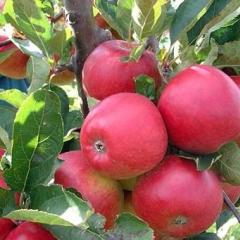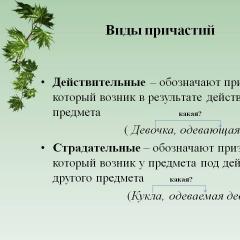Foreign words in Russian. Words of Foreign Origin: Examples
The language is the most universal communication tool that will respond mobile to changes in the needs of society. Every day one or more new words appear, which are the result of simplifying or mergeing available, but the greatest number of verbal new products come from abroad. So, foreign words in Russian: why do they arise and what are they present?
Ordon Russian vocabulary
The Russian language was formed throughout the centuries, as a result of which the three stages of the genesis of the original Russian words were designated.
Indo-European vocabulary arose in the era of neolithic and based on the basic concepts of kinship (mother, daughter), household items and life (hammer), food products (meat, fish), the name of animals (bull, deer) and elements (fire, water).
The main words were absorbed by the Russian language and are considered to be part of it.
A great influence on Russian speech was made by Praslavyanskaya vocabulary, which had a high relevance at the border of the VI-VII centuries. and extended to the territory of Eastern and Central Europe, as well as the Balkans.
In this group, there were words related to the vegetation world (tree, grass, root), the names of crops and plants (wheat, carrots, beets), workers and raw materials (hoe, fabric, stone, iron), birds (goose, nightingale) , as well as food (cheese, milk, kvass).
Modern words of the original Russian vocabulary originated from the VIII to the XVII century. And belonged to the East Slavonic language branch. The mass proportion of them expressed an action (running, lying, breeding, laying), arose the names of abstract concepts (freedom, result, experience, fate, thought), there were words corresponding to objects of life (wallpaper, carpet, book) and names of national dishes ( Cabbages, soup).
Some words so firmly arrived in the Russian speech, that the replacement would be needed not soon, others were brazenly ousted by more consonant synonyms from the neighboring countries. So "humanity" turned into "Humanity", the "appearance" was transformed into the "image", and the "contest" received the name "duel".
The problem of borrowing foreign words
From a long time, the Russian people led trade, cultural and political relations with carriers of other languages, so avoid mixing the vocabulary was almost impossible.
New words were introduced into Russian from both neighboring states and from the distant republics.
In fact, the words of foreign origin are so often present in our speech that we are already accustomed to them and absolutely not perceive them as something alien.

Here are some examples of well-fitted foreign words:
- China: tea.
- Mongolia: Bogatyr, Label, Darkness.
- Japan: Karate, karaoke, tsunami.
- Holland: Orange, jacket, hatch, yacht, sprats.
- Poland: Donut, Market, Fair.
- Czech Republic: tights, pistol, robot.
Official statistics say that only 10% of words in Russian borrowed. But if you listen to the conversational speech of the younger generation, it can be concluded that the clogging of the Russian language by foreign words has a more global scale.
 We go to Lunch in Fast Food and order a hamburger and a dairy shake. Having found free Wi-Fi, we will not miss the opportunity to visit the Facebook to put a couple of likes under the photo Best Frenda.
We go to Lunch in Fast Food and order a hamburger and a dairy shake. Having found free Wi-Fi, we will not miss the opportunity to visit the Facebook to put a couple of likes under the photo Best Frenda.
Borrowing foreign words: the main reasons
Why do we attract a vocabulary from neighboring states?

Greece
And now consider the geography of borrowing.
The most generous country lent in the Russian language part of the lexic reserve is Greece. She gave us the names of almost all famous sciences (geometry, astrology, geography, biology). In addition, Greek origin has many words related to the field of education (alphabet, spelling, Olympiad, Department, Phonetics, Library).
Some foreign words in Russian have abstract values \u200b\u200b(victory, triumph, chaos, charisma), others characterize quite tangible items (theater, cucumber, ship).

Thanks to the ancient Greek vocabulary, we learned what sympathy is expressed, felt the taste of the style and were able to capture bright events in the photos.
Interestingly, the meaning of some words passed into the Russian language unchanged, the other acquired new values \u200b\u200b(economics - housekeeping, tragedy - goat song).
Italy
Do you think a lot of words in Russian speech come from the Apennine Peninsula? Surely, except for the famous greeting "Chao", immediately nothing will remember. It turns out that Italian foreign words in Russian are present in sufficient quantities.
For example, a document certifying the personality was first called the passport in Italy, and only then this word was borrowed by many languages, including Russian.

We know the tricks of Sicilian clans, so the origin of the word "mafia" is not doubt. Just and "Carnival" stuck in many languages \u200b\u200bthanks to the bright costume show in Venice. But the Italian roots of the Vermicelli surprised: Vermicelli is translated on Apennines as "worms".
Recently, it became fashionable to use the definition for the press as "paparazzi". But in the literal translation, this is not at all journalists, as you might think, but "annoying mosquitoes."
France
But France presented Russian speech a lot of "delicious" words: grill, jelly, croissant, canapes, cream-brule, omelet, mashed potatoes, stew, soup, soufflo, eclair, cutlet and sauce. Of course, together with the names of French culinary recipes, preparation recipes were borrowed, many of whom went to the taste of Russian gourmeans.

A few more extensive borrowing branches are literature, cinema and entertainment industry: artist, ballet, billiards, magazine, couplet, play, purse, repertoire, restaurant and plot.
The French also became inventors of the seductive details of women's clothing (panties and peignoir), taught the world with the rules of behavior in society (etiquette) and beauty art (makeup, cream, perfumery).
Germany
The German vocabulary is so different from Russian, it is difficult to imagine what words could have come in her. It turns out that there are quite a lot of them.
For example, we often use the German word "route", which denotes a pre-elected path. Or "scale" - the ratio of size on the map and on the ground. And the "font" in Russian is the designation of the signs of the letter.
The names of some professions have taken place: hairdresser, accountant, locksmith.
The food industry also did not cost without borrowing: sandwich, dumpling, waffles and muesli, it turns out, also have German roots.
Also, the Russian language absorbed several fashion accessories to his vocabulary: women - "shoes" and "bra", men - "Tie", children - "Backpack". By the way, the smart child is often called "Wunderkind" - this is also a German concept.

Foreign words in Russian feel pretty comfortable, they even settled at us at home in the form of a chair, bathroom and tile.
England
The greatest number of borrowed words come from Misty Albion. Since English is international, and many of him know at a fairly decent level, it is not surprising that many words migrated to Russian and began to be perceived as relatives.
Foreign words in Russian practically omnipresent, but the most popular sectors of their applications are:
- business (PR, Office, Manager, Copyright, Broker, Holding);
- sports (goalkeeper, boxing, football, penalty, time out, foul);
- computer technologies (blog, offline, login, spam, traffic, hacker, hosting, gadget);
- entertainment Industry (Talk Show, Casting, Soundtrack, Hit).
Very often, English words are used as a youth slang, which is most susceptible to the influence of fashion (baby, boyfriend, liser, teenager, respect, make meikap, frit).
Some words have become so popular in the world that they have found a none value (jeans, show, weekend).


